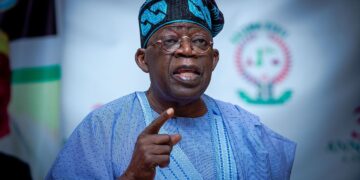A wave of outrage swept across Nigeria on Friday as several ethnic groups, activists, and civil society organizations rejected President Bola Tinubu’s posthumous pardon of the Ogoni Nine, a group of environmental activists including renowned writer Ken Saro-Wiwa, who were executed nearly three decades ago under the brutal military dictatorship of General Sani Abacha.
The pardon, according to reports was announced by Nigeria’s president Bola Tinubu as part of Nigeria’s Democracy Day commemorations on June 12, with an intention to establish national reconciliation. However, it has reopened old wounds among the Ogoni people and other marginalized ethnic groups in the oil-rich Niger Delta who see the move as symbolic at best and insulting at worst.
“These men were murdered for standing up against environmental degradation and the exploitation of their people. A pardon without justice is hollow,” said Ledum Mitee, a former member of the Movement for the Survival of the Ogoni People (MOSOP), who was also arrested alongside the Ogoni Nine but later released.
The Ogoni Nine—Ken Saro-Wiwa, Barinem Kiobel, John Kpuinen, Saturday Dobee, Nordu Eawo, Paul Levura, Felix Nuate, Daniel Gbooko, and Baribor Bera—were executed in 1995 after a secretive and heavily criticized trial by a military tribunal. Their only crime, supporters say, was challenging Shell’s oil operations and the Nigerian government’s complicity in polluting the Ogoni environment.
While Tinubu’s announcement included an appeal for healing and unity, it has instead sparked a renewed call for truth, accountability, and reparations, not just symbolic pardons. Many see the pardon as a political maneuver that sidesteps the broader issues of environmental justice and the lack of development in the Niger Delta.




















